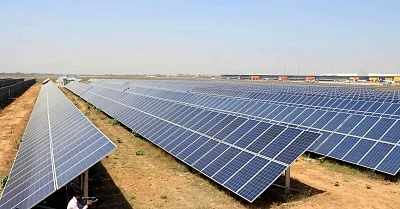New York, July 14 (IANS) The world must think more holistically about how it addresses renewable energy as efforts to shift away from fossil fuels and replace oil and coal with renewable energy sources can help reduce carbon emissions but at the expense of increased inequality, warn researchers.
The team from Portland State University (PSU) and Vanderbilt University found in a study of 175 nations from 1990 to 2014 that renewable energy consumption reduces carbon emissions more effectively when it occurs in a context of increasing inequality.
Conversely, it reduces emissions to a lesser degree when occurring in a context of decreasing inequality.
"People who are just making ends meet and can barely afford their energy bills will make a choice between food and their energy," said Julius McGee, assistant professor of sociology in PSU.
"We don't think of energy as a human right when it actually is. The things that consume the most energy in your household -- heating, cooling, refrigeration -- are the things you absolutely need," McGee added.
The findings, published in the journal Energy Research & Social Science, support previous claims by researchers who argue that renewable energy consumption may be indirectly driving energy poverty.
"Energy poverty" is when a household has no or inadequate access to energy services such as heating, cooling, lighting, and use of appliances due to a combination of factors: low income, increasing utility rates, and inefficient buildings and appliances.
In poorer nations, renewable sources of electricity have been used to alleviate "energy poverty". In rural areas in southeast Asia and sub-Saharan Africa, a solar farm can give an agrarian community access to electricity that historically never had access to energy.
"That's not having any impact on carbon dioxide emissions because those rural communities never used fossil fuels in the first place," McGee said.
Policymakers consider implementing policy tools that are aimed at both reducing inequality and reducing emissions.
"We need to be focusing on addressing concerns around housing and energy poverty before we actually think about addressing climate change within the confines of a consumer sovereignty model," stressed McGee.
--IANS
na/mag/
(This story was auto-published from a syndicated feed. No part of the story has been edited by The Quint.)
(At The Quint, we question everything. Play an active role in shaping our journalism by becoming a member today.)
